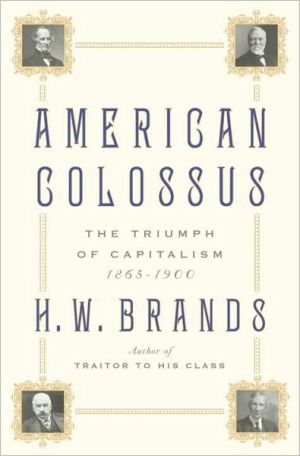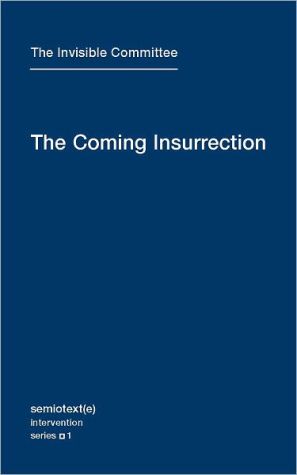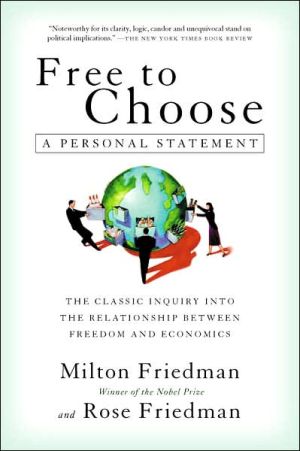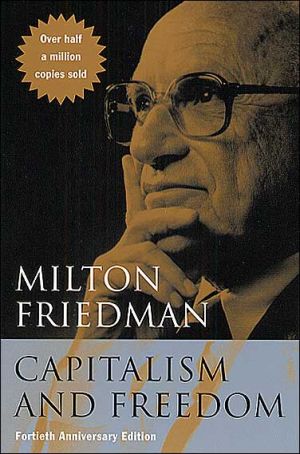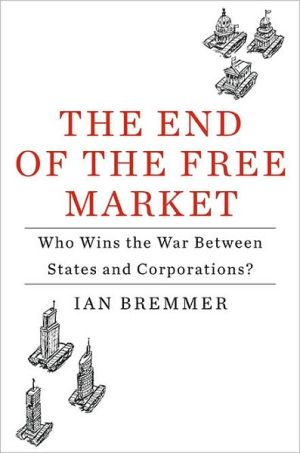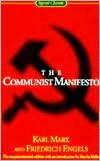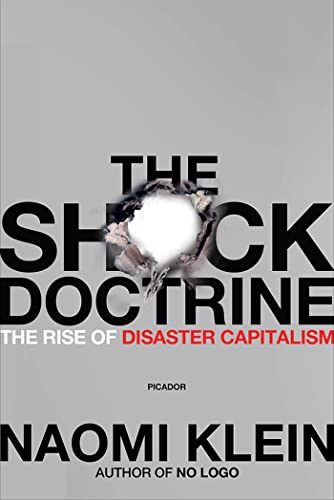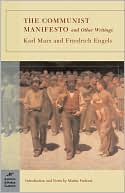American Colossus: The Triumph of Capitalism, 1865-1900
In a grand-scale narrative history, the bestselling author of two finalists for the Pulitzer Prize now captures the decades when capitalism was at its most unbridled and a few breathtakingly wealthy businessmen utterly transformed America from an agrarian economy to a world power. The years between the Civil War and the end of the nineteenth century saw the wholesale transformation of America from a land of small farmers and small businessmen into an industrial giant. Driven by unfathomably...
Search in google:
In a grand-scale narrative history, the bestselling author of two finalists for the Pulitzer Prize now captures the decades when capitalism was at its most unbridled and a few breathtakingly wealthy businessmen utterly transformed America from an agrarian economy to a world power. The years between the Civil War and the end of the nineteenth century saw the wholesale transformation of America from a land of small farmers and small businessmen into an industrial giant. Driven by unfathomably wealthy and powerful businessmen like J. P. Morgan, Andrew Carnegie and John D. Rockefeller, armies of workers, both male and female, were harnessed to a new vision of massive industry. A society rooted in the soil became one based in cities, and legions of immigrants were drawn to American shores. What’s more, in accomplishing its revolution, capitalism threatened to eclipse American democracy. “What do I care about the law?” bellowed Cornelius Vanderbilt. “Hain’t I got the power?” He did, and with it he and the other capitalists reshaped every aspect of American life. In American Colossus, H.W. Brands portrays the emergence, in a remarkably short time, of a recognizably modern America. The capitalist revolution left not a single area or aspect of American life untouched. It roared across the South, wrenching that region from its feudal past and integrating the southern economy into the national one. It burst over the West, dictating the destruction of Native American economies and peoples, driving the exploitation of natural resources, and making the frontier of settlement a business frontier as well. It crashed across the urban landscape of the East and North, turning cities into engines of wealth and poverty, opulence and squalor. It swamped the politics of an earlier era, capturing one major party and half of the other, inspiring the creation of a third party and determining the issues over which all three waged some of the bitterest battles in American history. Brands’s spellbinding narrative beautifully depicts the oil gushers of western Pennsylvania, the rise, in Chicago, of the first skyscraper, the exploration of the Colorado River, the cattle drives of the West, and the early passionate sparks of union life. By 1900 the America he portrays is wealthier than ever, yet prosperity is precarious, inequality rampant, and democracy stretched thin. American Colossus is an unforgettable portrait of the years when the contest between capitalism and democracy was at its sharpest, and capitalism triumphed.
Prologue: The Capitalist Revolution\ \ John Pierpont Morgan enjoyed an excellent Civil War. He didn’t fight, although he was prime military material, being in his midtwenties and blessed with solid health. Instead he hired a substitute in the manner of many rich, tepid Unionists. Morgan’s father was a transatlantic banker with one foot in New York and the other in London; to train his son for the business he had sent him to school in Switzerland and college in Germany. The young man’s aptitude for numbers prompted one of his professors at Gottingen to suggest a post on the mathematics faculty, but he replied that he heard the family business calling, and he returned to America to become a commodities trader. In an early transaction he bought a boatload of coffee without authorization; before his astonished superiors could fire him, he unloaded the cargo for a fat profit. They appreciated the income but distrusted the audacity and so declined to make him a partner, whereupon, in 1861, he planted his own flag on Wall Street.\ His timing couldn’t have been better, nor his scruples more suited to the opportunities the war afforded. Hearing of a man who had purchased five thousand old carbines from an armory in New York for $3.50 each, Morgan proceeded to finance a second purchaser, who paid $11.50 per gun, rifled the barrels to improve the weapons’ range and accuracy, and sold them back to the government for $22.00 apiece. The government got something for the six-fold premium it paid to repurchase its guns, but not nearly as much as Morgan did.\ Morgan speculated in all manner of commodities during the war. Though he didn’t shun honest risk, neither did he unnecessarily court it. He cultivated confidential informants who could tell him, a critical moment before such news became common knowledge, of the latest developments on the battlefield. His rewards were remarkable, especially for one so young. The tax return he filed in the spring of Appomattox revealed an annual income of more than $50,000, at a time when an unskilled worker counted himself lucky to get $200.\ Morgan wasn’t alone in profiting from the nation’s distress. Andrew Carnegie had clerked on the Pennsylvania Railroad during the decade before the war; by the time the war ended he was crowing, "I’m rich! I’m rich," from his speculations in railroads, iron, and oil. John D. Rockefeller focused on oil and did even better than Carnegie, creating the company that would show America and the world what an industrial monopoly looked like and how it behaved. Jay Cooke sold more than a billion dollars of bonds for the Union and took several hundred thousand in commission for himself. Cornelius Vanderbilt lengthened his lead as the richest man in America by diversifying from steamboats into railroads. Jay Gould learned the ways of Wall Street and the weaknesses of the federal government as he prepared for a breathtaking assault on the nation’s gold supply. Daniel Drew, Gould’s occasional partner, summarized the mood of the entrepreneurial classes: "Along with ordinary happenings, we fellows in Wall Street had the fortunes of war to speculate about, and that always makes great doings on a stock exchange. It’s good fishing in troubled waters."\ \ When Abraham Lincoln honored the heroes of Gettysburg after the battle that largely decided the war, he carried his listeners back to the dawn of American freedom, to the moment when Thomas Jefferson drafted and the Continental Congress approved the Declaration of Independence. Jefferson’s assertion that all men were created equal provided the basis for democracy—the government of, by, and for the people Lincoln proclaimed the Gettysburg dead had died defending.\ Yet another manifesto of 1776 was beginning, by the time of the Civil War, to exert as much influence over American life. Adam Smith’s Wealth of Nations was to capitalism what Jefferson’s Declaration was to democracy; where Jefferson cited natural law to justify a politics of self-government, Smith appealed to human nature in support of an economics of self-interest. Democracy didn’t spring fully formed from Jefferson’s brow, nor capitalism from the brain of Smith; each required decades to evolve and mature. But nowhere did they mature more fully than in the United States, which became the world’s archetype of a capitalist democracy.\ Yet the dual manifestos of 1776 were also dueling manifestos. The visions limned by Jefferson and Smith were in some ways complementary, with each claiming to maximize personal freedom, the first in politics, the second in economics. But in other respects they were antagonistic. Democracy depends on equality, capitalism on inequality. Citizens in a democracy come to the public square with one vote each; participants in a capitalist economy arrive at the marketplace with unequal talents and resources and leave the marketplace with unequal rewards. Nor is inequality simply a side effect of capitalism. A capitalist economy can’t operate without it. The differing talents and resources of individuals are recruited and sorted by the differential rewards, which reinforce the original differences. Inequality drives the engine of capitalism as surely as unequal temperatures drive heat engines—including the steam engines that were the signature devices of industrial capitalism.\ Tension between capitalism and democracy has characterized American life for two centuries, with one and then the other claiming temporary ascendance. During the first half of the nineteenth century, democracy took the lead, as the states abandoned property qualifications for voting and the parties responded by courting the masses of ordinary men. Andrew Jackson embodied the democratic ethos, by both his humble origins and his reverence for the people as the wellspring of political legitimacy. Jackson waged political war on the pet projects of the big capitalists of his day, smashing the Bank of the United States, vetoing federal spending on roads and canals, and beating down tariff rates.\ But capitalism fought back during the Civil War. Even as the Republican party freed the slaves, it emancipated the capitalist classes from the constraints imposed by Jackson and his Democratic heirs. Government became the sponsor of business rather than its foe, underwriting railroad construction, raising tariff rates, creating a national currency, and allowing the likes of Morgan to troll for fortunes in the troubled waters of the war.\ And the war was just the beginning of the capitalist ascendance. Morgan’s peace proved even better than his war. He never became as wealthy as Carnegie, Rockefeller, or some of the other great capitalists of the era; upon the reading in 1913 of Morgan’s will, which showed an estate of $68 million (exclusive of an art collection valued at $50 million), Carnegie lamented, "And to think, he was not a rich man." Yet Morgan’s power was more pervasive than the others’. Carnegie dominated steel, the industry on which modern America was, almost literally, built, and Rockefeller controlled oil, which lit, lubricated, and was beginning to power American life. But Morgan commanded money, the philosopher’s stone of modern capitalism. Morgan money’s reorganized the railroads, the nation’s vascular system. It bought out Carnegie and fought off Rockefeller to create the largest corporation in American history to that time, the United States Steel trust. And in one telling instance, it rescued President Grover Cleveland and the federal government from financial catastrophe.\ In his lighter moments Morgan played at being a pirate. He cruised about in a black-painted yacht he called the Corsair; he read of the exploits of that other famous Morgan, the English buccaneer Henry, and wondered if they were related. But Morgan was more than a pirate. He was a revolutionary. Pirates prey on the status quo; Morgan dismantled and rebuilt it. During the decades after the Civil War, Morgan and his fellow capitalists effected a stunning transformation in American life. They turned a society rooted in the soil into one based in cities. They lifted the standard of living of ordinary people to a plane associated, not long before in America and for decades after elsewhere, with aristocracy. They drew legions of souls from foreign countries to American shores. They established the basis for the projection of American economic and military power to the farthest corners of the planet.\ They didn’t do this alone, of course. A secret of their success was their ability to harness the strength and skill of armies of men and women to their capitalist purposes. More than a few of these foot soldiers participated unwillingly in the revolution; many hated Morgan and his ilk and passionately opposed them. But the nature of revolutions is to sweep the reluctant along, and despite the protests of farmers, laborers, and others attuned to a different time and sensibility, the capitalist revolution surged forward.\ It left not a single area or aspect of American life untouched. It roared across the South, wrenching that region from its feudal past into the capitalist present, reshaping relations of race, property, and class and integrating the Southern economy into the national economy. It burst over the West, dictating the destruction of aboriginal economies and peoples, driving the exploitation of natural resources and making the frontier of settlement a frontier of national—and global—capitalist development. It crashed across the urban landscape of the East and North, turning cities into engines of wealth and poverty, opulence and squalor, that confirmed cardinal tenets of the American creed even as it contradicted others. It swamped the politics of an earlier era, capturing one major party and half the other, inspiring the creation of a third party, and determining the issues over which all three waged some of the bitterest battles in American history. It demanded, and received, the protection of the courts, which reinterpreted the Constitution in capitalism’s favor.\ In accomplishing its revolution, capitalism threatened to eclipse American democracy. Morgan never ran for political office, but his mastery of finance afforded him more power than any elected official save the president, and sometimes even more than the president. No senator or governor so directly controlled the lives of so many people as Carnegie, whose hundreds of thousands of employees looked to him for the wages on which they and their millions of dependents relied. Rockefeller held whole regions hostage to his petroleum monopoly; he browbeat city governments, extorted favors from the states, and defied the federal government to rein him in. Lesser princes of the capitalist clan were hardly more accountable to the tens of millions who worked for them or purchased the goods and services they provided.\ Wealth had always conferred power, but never had a class of Americans been so wealthy as the great capitalists of the late nineteenth century, and never had such a small class wielded such incommensurate power. By the century’s end the imperatives of capitalism mattered more to the daily existence of most Americans than the principles of democracy. The old forms of law and politics survived, not least since the capitalists couldn’t be bothered to change them. "What do I care about the law?" bellowed Cornelius Vanderbilt. "Hain’t I got the power?" He did have the power, and with it he and the other capitalists dominated American life. Whether their advantage would prove more durable than democracy’s earlier edge, none of them could tell. But for the time being, in the land of Jefferson the sons of Smith held sway.\
Prologue The Capitalist Revolution 3\ PART ONE The Rise Of The Moguls\ Chapter 1 Speculation as Martial Art 11\ Chapter 2 One Nation Under Rails 40\ Chapter 3 The First Triumvirate 65\ Chapter 4 Toil and Trouble 95\ PART TWO Frontiers Of Enterprise\ Chapter 5 The Conquest of the South 123\ Chapter 6 Lakota's Last Stand 152\ Chapter 7 Profits on the Hoof 182\ Chapter 8 To Make the Desert Bloom 206\ PART THREE Gotham And Gomorrah\ Chapter 9 The Teeming Shore 233\ Chapter 10 Cities of the Plain 260\ Chapter 11 Below the E1 288\ PART FOUR The Finest Government Money Can Buy\ Chapter 12 School for Scandal 309\ Chapter 13 The Spirit of '76 331\ Chapter 14 Lives of the Parties 348\ Chapter 15 Capital Improvements 364\ PART FIVE The Decade Of The Century\ Chapter 16 Meet Jim Crow 387\ Chapter 17 Affairs of the Heartland 422\ Chapter 18 The Wages of Capitalism 457\ Chapter 19 Tariff Bill and Dollar Mark 480\ Chapter 20 Imperial Dreams 498\ Chapter 21 The Apotheosis of Pierpont Morgan 528\ Epilogue The Democratic Counterrevolution 541\ Acknowledgments 557\ Notes 559\ Index 591
\ Publishers WeeklyIn this timely study, University of Texas historian Brands (Traitor to His Class) describes the rise of the great corporate capitalists after the Civil War. J. Pierpont Morgan, John D. Rockefeller, and Andrew Carnegie constituted an trinity of power-obsessed individuals who instinctively understood that wealth was the ultimate political weapon. They defined the cold-blooded authority of big business. Fascinating detours away from the tale of corporate empires examine the Reconstruction process in the South, the Indian Wars of the West, the opening of the Great Plains, immigration in the East, and the rise of organized labor and the agrarian reformers. Effectively, excerpts from the first-person accounts of Booker T. Washington, Black Elk, Jacob Riis, and others convey the drama of the time. Perhaps the only significant omission in this fast-paced, engrossing narrative is a tendency to dwell on political doctrines that sought to repudiate or restrain capitalism while only briefly discussing the dogma of Herbert Spencer's social Darwinism,which favored the monopolists. (Oct.)\ \ \ \ \ Library JournalBrands (Dickson Allen Anderson Professor of History, Univ. of Texas-Austin; Traitor to His Class: The Privileged Life and Radical Presidency of Franklin Delano Roosevelt) here argues that the capitalist revolution of the mid- to late 19th century was perhaps the best thing that could happen to the American people, albeit at a cost. Individuals such as Cornelius Vanderbilt, Andrew Carnegie, J. Pierpont Morgan, and John D. Rockefeller provided the means to win the Civil War, bind the nation together with railroads, begin larger-scale agriculture in the plains, increase industrial production, and enlarge the country's population through massive immigration from both Europe and Asia. Brands also shows that American capitalism corrupted local, state, and federal government, built a financial system that swung between boom and bust, drastically reduced the Native American population, and established Jim Crow segregation in the South, while also creating a working environment that brought forth the union and populist movements. VERDICT Although this is a familiar story, the author's focus on how the business climate affected the rest of society provides a distinctive perspective on the era. His work, drawn from secondary sources, is a good, solid contribution for undergraduates and other readers interested in the Gilded Age.—Stephen L. Hupp, West Virginia Univ. Lib., Parkersburg\ \ \ Kirkus ReviewsA loosely themed survey of 35 years of American history.\ Eminent historian Brands (History/Univ. of Texas;American Dreams: The United States Since 1945, 2010, etc.) elucidates the tension between the U.S. brand of democracy and itsversion of capitalism through anecdotes starring politicians, diplomats, judges, union leaders and corporate tycoons, with an emphasis on the tycoons. He singles out Andrew Carnegie, J.P. Morgan and John D. Rockefeller as deserving special attention because of their dominance over vital industries and their unprecedented personal wealth. The narrative is organized somewhat chronologically from the end of the Civil War to the early years of the 20th century, emphasizing corporate growth, geographical expansion, increasing urbanism, government intervention and various forms of inequality. Within each section, Brands does not always provide smooth transitions. For example, he jumps from the U.S. government's purchase of Alaska to the rise of Social Darwinism among American intellectuals without overtly signifying why one follows the other. Further, the author relies too heavily on previous histories and biographies, including some of his own. The recurring theme of the tension between capitalism and democracy is most stark in Brands' coverage of U.S. expansion beyond natural boundaries. For example, the capture of the Philippines by American troops could have set the stage for colonial endeavors on every continent. It did not, however, because colonialism nagged at the consciences of many Americans, who believed that democracy should be about a population's self-determination, not about imposing foreign domination on behalf of capitalists lining their bank accounts. After the capture of the Philippines, never again would the United States seek to own another nation.\ An educational, briskly written pseudo-textbook aimed at readers outsideuniversity classrooms.\ \ \ \ \ \ The Barnes & Noble ReviewIt used to be a given that religion was the source of all important knowledge. Both the "how" of the universe -- what it is like, and how it works -- and the "why" -- why it exists at all, and why human life has a place in it -- were to be answered by referring to religious stories and authorities. With the rise of modernity questions of the first sort were removed from religion's purview: we think of them now as scientific questions, to be answered by empirical investigation. But many defenders of religion cling to the idea that, while science is the proper venue for "how" questions, we must still turn to religion to find answers to questions of meaning and purpose, of the value of human life, and of moral behavior.\ But why should this be? In part, as Sam Harris notes in his new book, The Moral Landscape: How Science Can Determine Human Values, it is because secular liberals have tended to accept a form of moral skepticism or relativism, according to which there are no moral truths at all other than those that can be asserted within a particular cultural context. The idea of an objective moral truth, then, is something that secularists have largely abandoned to believers. And the idea that science, in particular, might have something to say about questions of morality is one that few contemporaries are willing to take seriously. People who go searching for answers to questions of value often simply assume both that science will not help them and that religion is the only alternative.\ Harris, whose two bestselling defenses of atheism and secularism (The End of Faith and Letter to a Christian Nation) have established his membership in the Dawkins-Dennett-Hitchens pantheon of "new atheists," thinks this is a deep and profoundly consequential mistake. A proper understanding of morality, he argues, will reveal that it falls well within the area of inquiry that is governed by science. For moral questions are questions about well-being, and questions about well-being are, in essence, empirical questions about what makes humans and other conscious organisms flourish and thrive. "Questions about values -- about meaning, morality, and life's larger purpose -- are really questions about the well-being of conscious creatures," he announces on page one. "Values, therefore, translate into facts that can be scientifically understood."\ Why think that moral questions must reduce to questions regarding the well-being of conscious creatures? Well, Harris responds, what else could they possibly be about? How could anything that does not in any way affect the conscious experiences of some living entity matter, morally speaking, at all? To hold that such a thing could matter would, in his view, amount to an illogical superstition. But it is equally mistaken, he suggests, to insist that questions of well-being cannot be addressed by empirical research methods. There are, he says, discernible and indeed undeniable differences between an extremely good human life and an extremely miserable one; and there is no good reason for refusing to view those differences as both real and, in the relevant sense, objective. \ Harris is, then, a moral realist: someone who thinks that there are moral facts and, thus, objectively right answers to moral questions. He also takes the link between morality and well-being to imply a kind of consequentialism -- though precisely what kind of consequentialism is not entirely clear. At times he seems to use "consequentialism" simply to imply that the consequences of an action, in terms of conscious creatures' well-being, are what determine that action's moral rightness or wrongness. This is a quite modest view that is compatible with all sorts of accounts of how such well-being matters. (For instance, the claim that I should always maximize my own self-interest, and not be concerned with anyone else's well-being, is in this sense a consequentialist view.) But at other times he goes much further, seeming to suggest that he has somehow established that the consequences must matter in a certain way: well-being in the universe at large (and thus not simply my own well-being, or that of myself and those I care about) must be maximized -- even where doing so involves violating the basic rights of some particular person, or sacrificing the few for the sake of the many.\ Consider, for instance, the following passage (consigned, as is most of the meatier argument in The Moral Landscape, to an endnote) in which Harris considers the problem posed for consequentialists by Robert Nozick's so-called "utility monster":\ \ Nozick . . . asks if it would be ethical for our species to be sacrificed for the unimaginably vast happiness of some superbeings. Provided that we take the time to really imagine the details (which is not easy), I think the answer is clearly "yes." There seems no reason to suppose that we must occupy the highest peak on the moral landscape.\ \ That the answer to Nozick's question is yes -- let alone that it is "clearly" yes -- seems to me doubtful; and the assumption that it reduces to the question of whether humans must be, morally speaking, the worthiest creatures in existence, is both simplistic and implausible. Moreover, Harris entirely ignores another of Nozick's thought experiments, which casts doubt on the very idea that the quality of our conscious experiences is all that matters to our well-being. This is the famous Experience Machine, a virtual reality device that creates a highly realistic simulation of life -- indeed, indistinguishable from reality -- and asks us to consider whether one would give up life in the actual, physical world in exchange for a life of greater pleasure, excitement, and fulfillment, which, as it happened, would take place entirely in one's own mind.\ The fact that most people would say no, Nozick writes, shows that we value something aside from the quality of our conscious experiences. And this, if true, poses a significant challenge to Harris's view. So one must ask: has Harris not heard of the Experience Machine, or did he just not consider it important? In a remarkable footnote that is worth quoting at length, he attempts to justify his decision not to engage with the rich literature that analytic philosophers have produced surrounding issues of moral realism, skepticism, and consequentialism:\ \ Many of my critics fault me for not engaging more directly with the academic literature on moral philosophy. There are two reasons why I haven't done this: First, while I have read a fair amount of this literature, I did not arrive at my position on the relationship between human values and the rest of human knowledge by reading the work of moral philosophers; I came to it by considering the logical implications of our making continued progress in the sciences of the mind. Second, I am convinced that every appearance of terms like "metaethics," "deontology," "noncognitivism," "antirealism," "emotivism," etc., directly increases the amount of boredom in the universe. My goal . . . in writing this book is to start a conversation that a wider audience can engage with and find helpful. Few things would make this goal harder to achieve than for me to speak and write like an academic philosopher. Of course, some discussion of philosophy will be unavoidable, but my approach is to generally make an end run around many of the views and conceptual distinctions that make academic discussions of human values so inaccessible. While this is guaranteed to annoy a few people, the professional philosophers I've consulted seem to understand and support what I am doing.\ \ One cannot help but wonder just which professional philosophers gave Harris their blessing. (Are we to assume, as Harris seems to imply, that there are few if any philosophers among the "many" critics who faulted him for ignoring philosophy?) Imagine a philosopher who approached a group of scientists and said, "I'd like to write a book about evolution, but because I have arrived at my own views on evolution independently of the scientific literature, and because I want to reach as many people as possible, I would prefer to avoid engaging directly with the work of biologists in this area." Would they be likely to endorse such an approach?\ It would be one thing to try to write intelligently about moral skepticism while avoiding the language of academic philosophy -- or at least, the unnecessarily finicky aspects of it -- with the hope of reaching a general audience. But to try to avoid not only the terminology, but large portions of the subject matter itself -- the "views and conceptual distinctions that make academic discussions of human values so inaccessible" -- is to commit oneself to providing an incomplete and highly distorted account of the subject. This is unfortunate, given that Harris has a number of sensible and pertinent points to contribute to the debate. Moral skepticism is all too frequently advanced by people who have no idea what the arguments for it are, as if it were simply an obvious fact, accepted by all reasonable persons, that values cannot possibly aspire to the objectivity of fact, and that any evaluation must, at the end of the day, reduce to an expression of some indefensible preference or prejudice. Statements like "morality is just a matter of subjective opinion" are often uttered as if they required no defense -- even when it is easy to demonstrate that the skeptics themselves live and behave in ways that appear deeply incompatible with their alleged skepticism.\ The Moral Landscape has some good, reasonable, and at times persuasive things to say to such people. But as it turns out, it has little to say to those people who actually do know what the arguments are, and it will not help others become much better informed. Harris might be right that the best way to reach a "wider audience" is to sidestep difficult philosophical issues. But just how helpful to that wider audience can a book be that hides from the complexities of its subject, and misrepresents what it alleges to discuss by making genuinely difficult questions look straightforward and simple?\ --Troy Jollimore\ \ \ \ \ \
